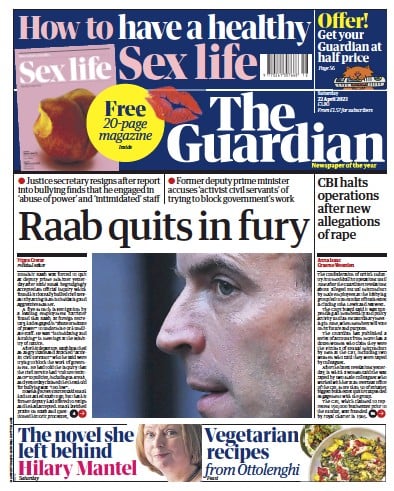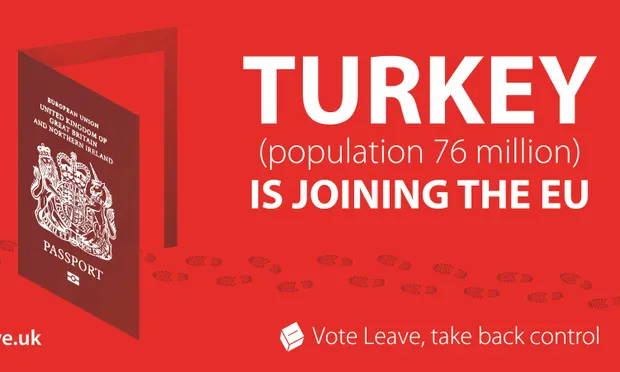Politicians have to navigate two worlds: that of politically correct official policy and the respectable disagreements with it, and the world of their committed supporters where more extreme views are common currency. This happens in all parties. Liberal politicians have to restrain and suppress views on such topics as Brexit and immigration, for example. This does not stop politically incorrect views being widely disseminated in mainstream media, of course, but politicians must be very wary of publicly supporting any such views. Two episodes which broke over the weekend illustrate this.
The first was that of Dominic Raab, who resigned as deputy prime minister and Justice Secretary, after a report into accusations of inappropriate behaviour – bullying – in the management of civil servants, which upheld some of them. Mr Raab came out swinging: he suggested that the threshold set for bullying was set too low, and would make the task of ministers implementing their promises to electors impossible. He also suggested that some civil servants were undermining the government because they disagreed with its policies. These complaints were taken up by parts of the press, notably The Telegraph. It was soon being suggested that the complaints were orchestrated in order to remove a politically contentious but hard-working minister – and that others would receive the same treatment.
The prime minister has remained silent on the issue; opposition parties have piled in to condemn Mr Raab, with the Liberal Democrats even suggesting that he resign as an MP. On the face of it, Mr Raab’s arguments are hard to sustain. Most of the specific complaints made by civil servants (six out of eight) were not upheld – but there were two examples that the report’s author, employment lawyer Adam Tolley, viewed as too extreme. It would be easier to accept Mr Raab’s assertion if all the complaints had been upheld. The bar Mr Raab seems to want is high indeed – physical intimidation. Others point out that Mr Raab’s record of achievement in office is weak, compared to others with similar politics. I have spent many years in a professional management environment and have no sympathy with what Mr Raab is suggesting. There are good and bad ways of getting the people you work with to do what you want; Mr Raab clearly opted for the bad far too often. I am pretty obsessive about fonts and formatting (apparently one of the issues that Mr Raab complained about) – but as a manager I just had to let go, as the topic didn’t matter all that much in the end.
Still, Mr Raab is getting a sympathetic hearing in many places, and not just The Telegraph. But this is not politically mainstream. One survey suggests that most people claim to have experienced bullying by their superiors at work. I have worried that bullying behaviour by managers is so commonly portrayed in television and film dramas that people think it is how management is done – but this is doubtless trumped by direct personal experience, where people meet good management technique as well as bad. The FT’s Stephen Bush suggests that political careers tend not to provide such exposure to good management practice, though, and perhaps that is why politicians so often fall into Mr Raab’s trap. It is easier to see how the idea of the civil service undermining government policy has currency, though. The idea of a civil service “blob” is popular amongst conservatives; doubtless socialists who have made it as far as government office feel similarly. Passive-aggressive behaviours are common in all organisations, though, and the more radical your ideas are, the more of it you will get – as I know full well from direct experience. It is something competent managers develop techniques to manage, and less competent ones get paranoid about. But such conspiracy theories are the currency of activists and not the political mainstream.
Diane Abbott’s case is perhaps a bit more interesting. Ms Abbott is a long-standing Labour MP, elected in 1987, as the first black woman elected to parliament. While she can be a bit eccentric, she is clearly an intelligent person, and one who has suffered mountains of misogynistic and racial abuse. Her problems arose from a letter to The Observer newspaper, in response to this article by Tomiwa Owolade. It is worth getting the context of this episode right. Mr Owolade led off with this anecdote:
I was a sixth-form student and talking to a girl who told me with utter confidence that “white people can’t be victims of racism”. Racism is about power and privilege. White people have power and privilege. Black people and Asians don’t. This means that only the latter group can be victims of racism; racism is the exercise of power and privilege against people of colour.
Tomiwa Owolade, The Observer 15 April 2023
He describes how at first he accepted this point of view, but that he came to reject it: life is much more complicated than that (‘not black and white” as the title to the article has it). In evidence he discussed a recent survey of people’s experiences of racist abuse. This found that both Jews and Irish Travellers, people often defined by black people as “white”, were more likely to experience such abuse than black or Asian people. The survey even found that white Irish people suffered more racial abuse than black Africans or Asians. He also pondered the fact that in the survey most black and Asian people did not claim to have experienced racial abuse at all. Of course a survey such as this is not conclusive evidence by itself, and actual experience of abuse is only one explanation of the way people answer such questions: but it is clear that Jewish people, and especially Irish Travellers, experience a lot of abuse.
This was, apparently, too much for Ms Abbott, who clearly agreed with the girl in Mr Owolade’s anecdote, and defines Jews, Travellers and Irish as white. She has since withdrawn the letter (and apologised for its content which she described as an early draft sent by accident), and I haven’t found a version of the full text to link to. These are the sentences that have been most widely quoted:
It is true that many types of white people with points of difference, such as redheads, can experience this prejudice. But they are not all their lives subject to racism. In pre-civil rights America, Irish people, Jewish people and Travellers were not required to sit at the back of the bus. In apartheid South Africa, these groups were allowed to vote. And at the height of slavery, there were no white-seeming people manacled on the slave ships.
I hope I don’t need to point out that highly selective nature of Ms Abbott’s historical examples (Jews and Gypsies sent to death camps in Europe; British ruling classes shrugging off mass starvation during the Irish famine, and so on): her words clearly reflect common talking points amongst certain groups of political activists – and I do understand why black people in particular are reluctant to accept terms of reference set by a white-dominated establishment. But in the wider political context such ideas are incendiary – and much more politically incorrect that Mr Raab’s views on what constitutes bullying. The Labour Party is just emerging from a very damaging row about antisemitism – which the leadership of Jeremy Corbyn was accused of not doing enough to combat. Mr Corbyn’s line was different to this one though – he suggested that antisemitism was just another form of racism, and didn’t merit special treatment. But Ms Abbott’s letter suggests that antisemitism is on a par with prejudice against redheads. She was immediately suspended pending investigation. It is hard to understand how such an experienced politician allowed such a letter to go out under their name – and very hard to see how she can come back from it.
Alas a sensible debate on racism and antisemitism is impossible to have in the current political climate. Pretty much any view is going to create offence somewhere – and spark accusations of some form of racism or denial. Nuance is crushed as every scrap of evidence is mobilised to support one or other fixed view. It is clearly is a complicated issue, but no respectable politician can afford to challenge the conventional wisdom. I rarely discuss it on my blog, since the risk of my remarks being misinterpreted and misused is so high.
Still some writers, such as Mr Owolade (who writes for the New Statesman) do try to explore the nuance. Perhaps one day we can move on. At least with workplace bullying and the role of the civil service we can have a bit more of an open debate.




